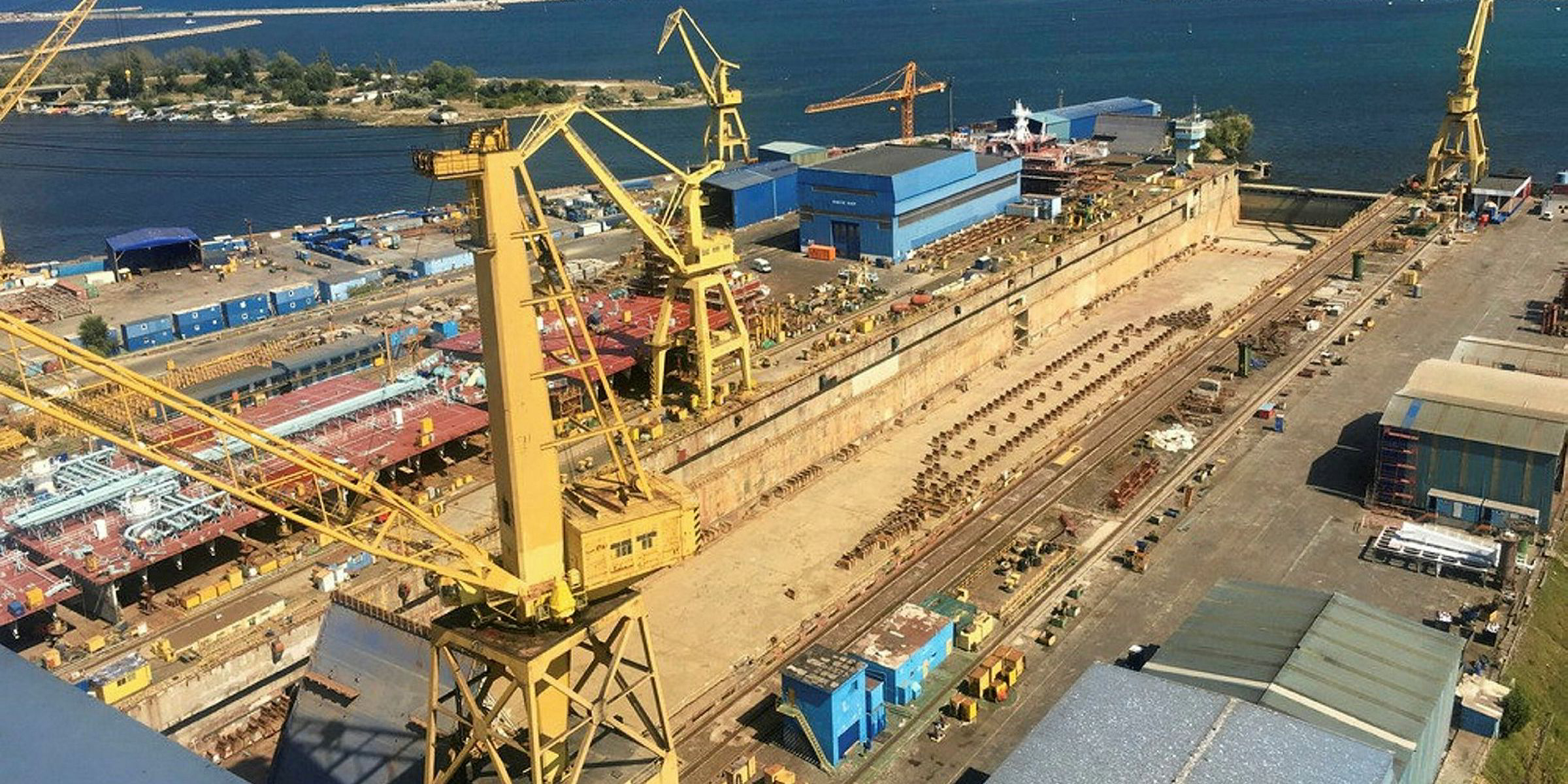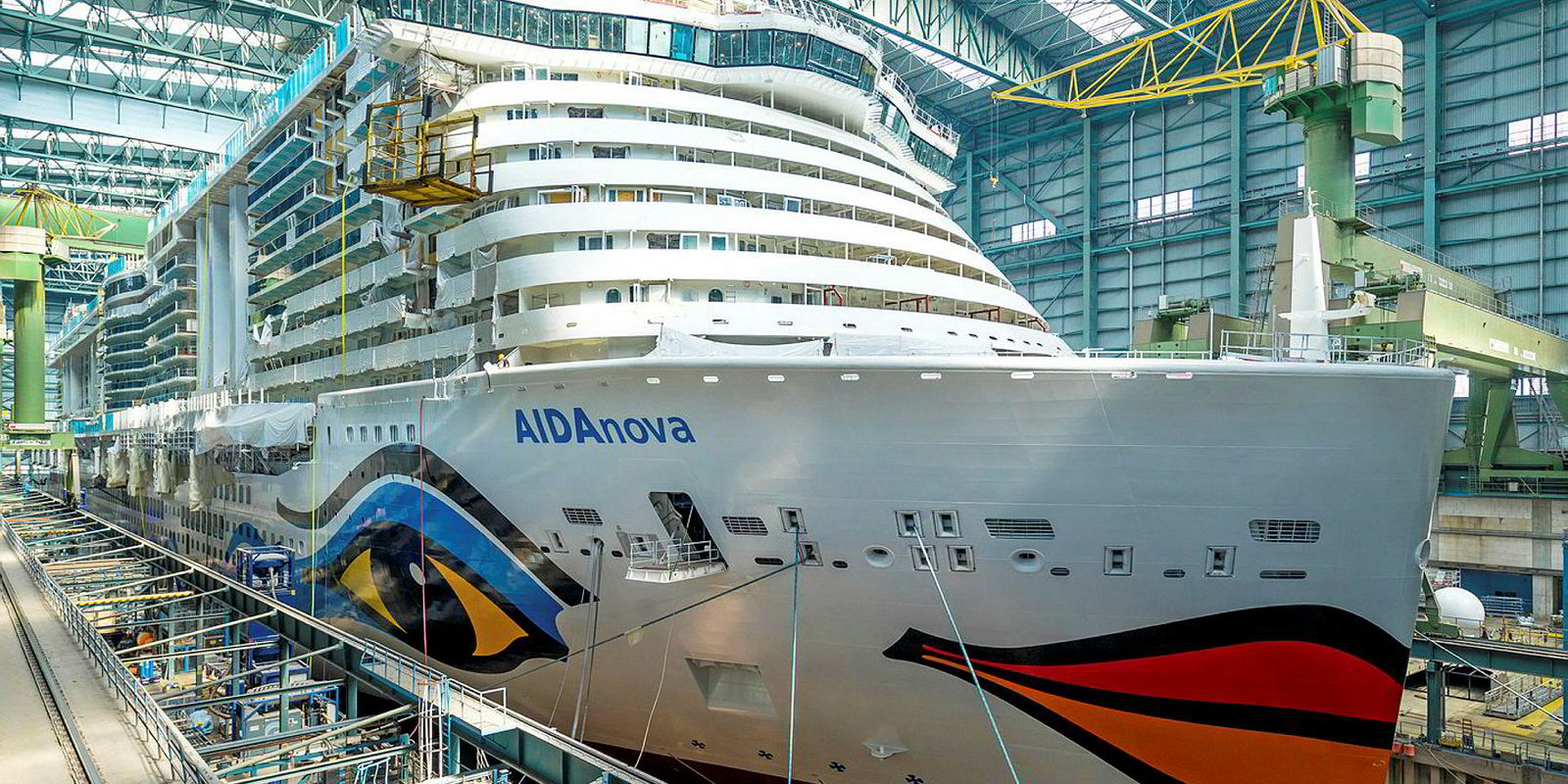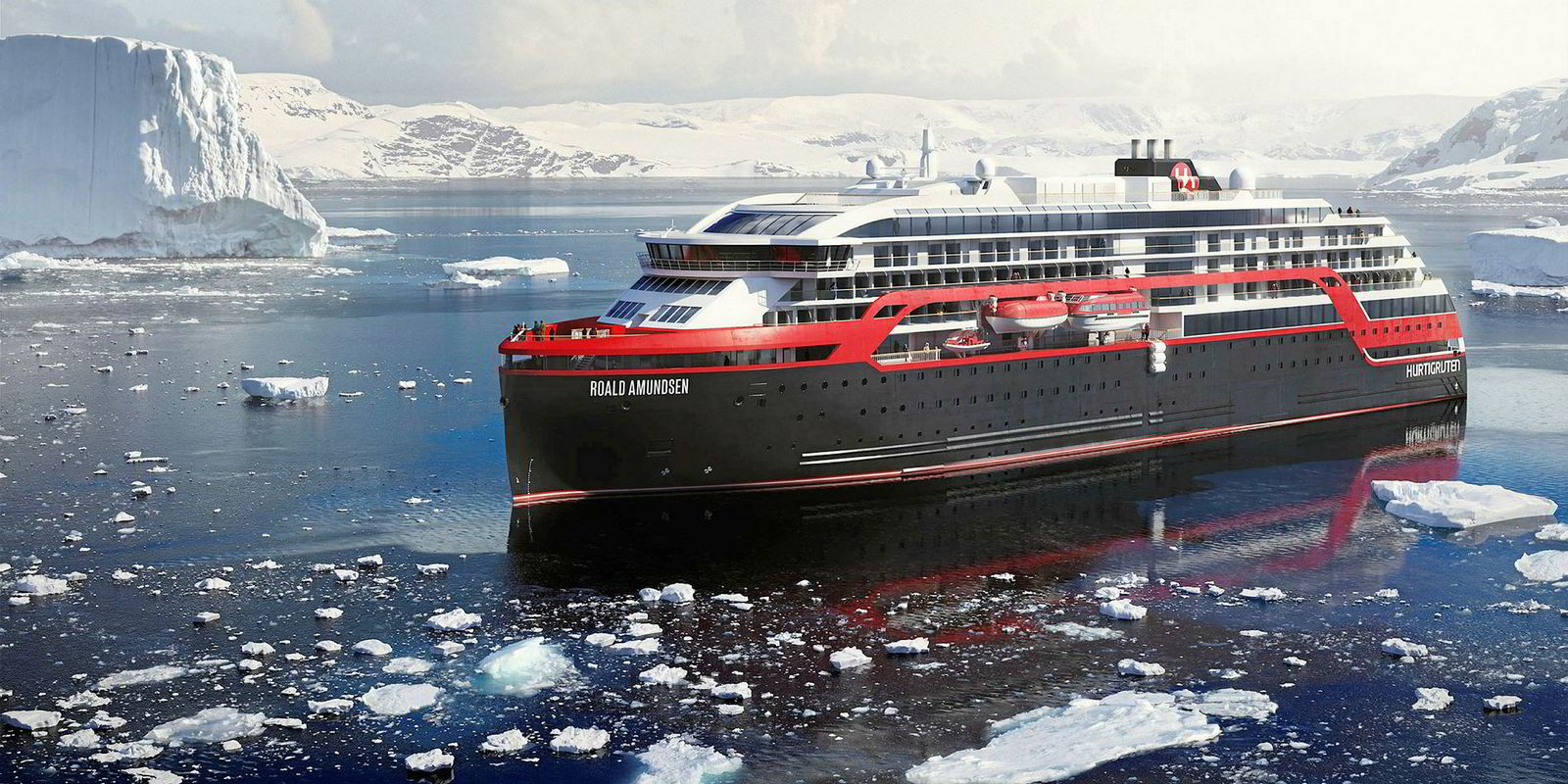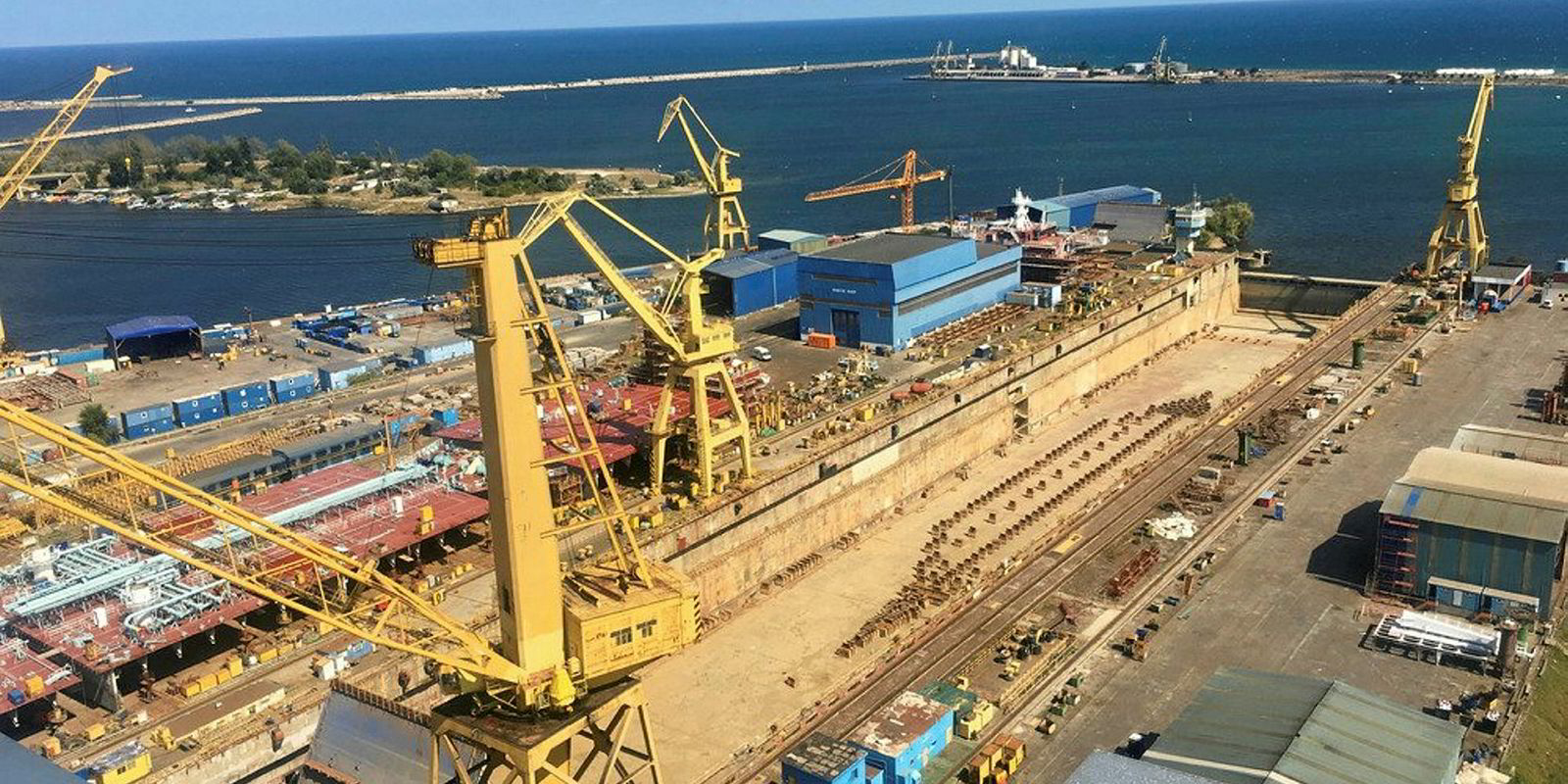Some European yards diversifying due to market pressures have struggled to meet delivery schedules for very specialised ships.
Germany’s Flensburger Shipyard, for example, faced difficulties after 2010 as the ro-ro and ropax specialist sought to compensate for a lack of orders by building offshore well-intervention ships, heavylift semi-submersible units and seismic vessels.
Too many prototypes resulted in delivery delays and losses before Norway’s Siem Industries stepped in as the new owner. Subsequently, Flensburger has repositioned itself in the market and negotiated some high-value cruise ferry orders.
Norwegian offshore vessel specialist Kleven Verft has fallen into the hands of Hurtigruten-owned KVE Holding after seeking fresh capital. It has been forced to delay delivery of two advanced hybrid 21,000-gt, 500-passenger expedition vessels, the Roald Amundsen and Fridtjof Nansen, which is indicative of the difficulty transitioning to cruiseship construction.
Fortunately, positive signs in the secondhand market indicate the worst of the offshore decline is behind us. But it is too early to talk about offshore yard orders again, says BRS chief executive Francois Cadiou.
In Croatia, Uljanik is cash-strapped, undergoing restructuring and has drawn up plans to sell its 3 Maj site. The government is also under pressure from the European Union to reduce or scrap subsidies.
Siem cancelled four carriers at Uljanik in September. Canada's Algoma Central Corp subsequently pulled out of a bulker at the same yard and last week confirmed it was scrapping also orders for three other handysizes at Uljanik's 3 Maj.

Tipsters point to Italy’s Fincantieri being the prime candidate to acquire 3 Maj because of its capacity to supply steel blocks for cruiseships. It is well located in terms of Fincantieri yards in the region, such as Monfalcone.
As Cadiou points out, 3 Maj has a record of building sophisticated ships, so becoming in effect a subcontractor to another yard could dent national pride. But if Fincantieri does take over, he sees a medium-term and, hopefully, a long-term future for 3 Maj.
Renationalisation of Stocznia Gdansk may indicate a belief by the Polish authorities that the market is changing and an opportunity exists to reactivate yards that went into sharp decline or closed over the past decade.
TradeWinds reported last year on early government attempts to re-establish Poland as a force in shipbuilding.
In another government move, the Romanian state now holds 51% of the Mangalia yard that was previously controlled by South Korea’s DSME. Damen Shipyards Group has taken a 49% stake and is responsible for operational management of the site, which is reported to have suffered losses of $800m over the past five years
As Daewoo Mangalia Heavy Industries (DMHI), it built almost 130 tankers and containerships, securing some formidable Greek accounts.
Damen conceded as it began operations at the Black Sea facility in July that it faced a “challenging period considering the yard’s current condition”.
It hopes to use DMHI, with its three graving docks, for building cruiseships, ropaxes and offshore vessels. Observers say it is an opportunity for Damen to acquire a very modern yard, and with it close ties to the state when the present market may require subsidies and other support.
Damen has also teamed up with Italy’s T Mariotti to build cruiseships. Its announcement coincided with Seabourn signing a letter of intent for two ultra-luxury expedition vessels with the new partnership.
In Spain, La Naval, the largest shipyard in the Basque country, sought bankruptcy protection but strives to continue. It was a different story at compatriot Barreras, where orders include a deal for up to three luxury cruise yachts for the Ritz-Carlton Hotel group.

Regarding the future of STX France, Fincantieri chief executive Giuseppe Bono tells TradeWinds the pending merger of the two cruiseship specialists is a perfect fit, “generating value not only for the shareholders but also employees and the respective subcontractor networks”.
A decision by the antitrust authorities on the deal, which would see Fincantieri in effect holding 51% of the share capital of the Saint-Nazaire yard, is expected before the end of this year.







